At-Fault Car Accident: Can I Lose My House?
Being involved in a car accident can have significant consequences, including potential liability for property damage. One of the main concerns arising from an at-fault car accident is whether you could potentially lose your house as a result. Understanding the legal and financial implications is crucial to protect your assets and ensure peace of mind.
Key Takeaways:
- Liability coverage is designed to cover the costs of the other party’s injuries and property damage if you are at fault in a car accident.
- If the damages exceed the liability coverage limit, you may be personally responsible for the remaining amount.
- If you cannot pay the remaining damages out of pocket, the injured party may file a lawsuit that could potentially target your home as an asset to be seized.
- To safeguard your assets, including your home, it is important to ensure that your liability coverage matches your net worth.
- Consulting with a car accident attorney can provide personalized advice and legal assistance in navigating the complexities of car accidents, insurance, and potential asset protection.
Understanding Liability Coverage and Damages
Liability insurance is a crucial aspect of car accident consequences. In the event that you are at fault in an accident, liability coverage is designed to protect you from legal and financial consequences. It covers the costs of the other party’s injuries and property damage, ensuring that they are adequately compensated for their losses.
Your insurance policy will have a liability coverage limit, which is the maximum amount your insurance company will pay towards the damages. If the damages incurred in the accident exceed this limit, you may be personally responsible for the remaining amount.
It’s important to note that if you cannot afford to pay the remaining damages out of pocket, the injured party may choose to file a lawsuit to recover the remaining amount. This can potentially lead to your personal assets, including your home, being targeted for seizure.
To visually illustrate the potential financial impact of liability coverage and damages, the table below showcases a hypothetical scenario:
| Accident Damages | Liability Coverage | Remaining Damages |
|---|---|---|
| $50,000 | $25,000 | $25,000 |
If the damages in the car accident amount to $50,000 and your liability coverage limit is $25,000, you would be responsible for the remaining $25,000. If you cannot afford to pay this amount, the injured party may file a lawsuit to recover the damages, potentially targeting your home.
In such situations, it’s advisable to consult with an attorney who specializes in personal injury cases to understand your legal rights and options. They can provide valuable guidance on how to navigate the legal consequences of an at-fault car accident and protect your personal property.
Safeguarding Your Assets
To protect your assets, including your home, it is important to ensure that your liability coverage matches your net worth. If your coverage limit is insufficient, consider purchasing an umbrella policy which provides additional coverage beyond your standard car insurance policy. Additionally, some states have homestead laws that protect a portion of your home equity from creditors, although the amount protected varies by state.
Liability Coverage and Asset Protection
When it comes to safeguarding your assets, having the right insurance coverage is essential. Liability coverage acts as a financial shield, protecting you in the event of property damage or personal injuries caused by a car accident you’re deemed liable for. The limits of your liability coverage should align with the value of your assets, including your home.
“By ensuring that your liability coverage matches your net worth, you can have peace of mind knowing that your assets are protected in case of property loss due to a car accident.”
An umbrella policy can provide an additional layer of protection for your assets. This type of policy extends the liability coverage beyond the limits of your standard car insurance policy. It offers higher coverage limits and can help protect your home and other valuable assets in the event that the damages exceed your primary coverage.
Homestead Laws and Home Equity
Furthermore, some states have homestead laws that safeguard a portion of your home equity from creditors. These laws provide varying degrees of protection, allowing you to retain a specific amount of equity in your home even during a financial crisis. Understanding your state’s homestead laws can help you determine how much of your home’s value is shielded in the event of a car accident lawsuit.
To illustrate the importance of protecting your assets, consider the following scenario:
| Scenario | Outcome |
|---|---|
| Insufficient Liability Coverage | If your liability coverage limit is too low and doesn’t cover the damages awarded in a car accident lawsuit, you may be personally responsible for the remaining amount. In such cases, your home could be at risk of being seized or sold to satisfy the judgment. |
| Protection with Umbrella Policy | If you have an umbrella policy, the additional coverage it provides can help bridge the gap between your primary coverage and the damages awarded. This extra layer of protection can help safeguard your home and other assets from being targeted in a lawsuit. |
| Homestead Law Protection | If your state has homestead laws in place, a portion of your home equity may be protected from creditors. This protection can help shield your home from being sold or seized to satisfy a car accident judgment. |
By taking proactive measures to align your liability coverage with your net worth, considering umbrella policies, and understanding your state’s homestead laws, you can effectively safeguard your assets, including your home, against property loss resulting from car accident claims and damages.
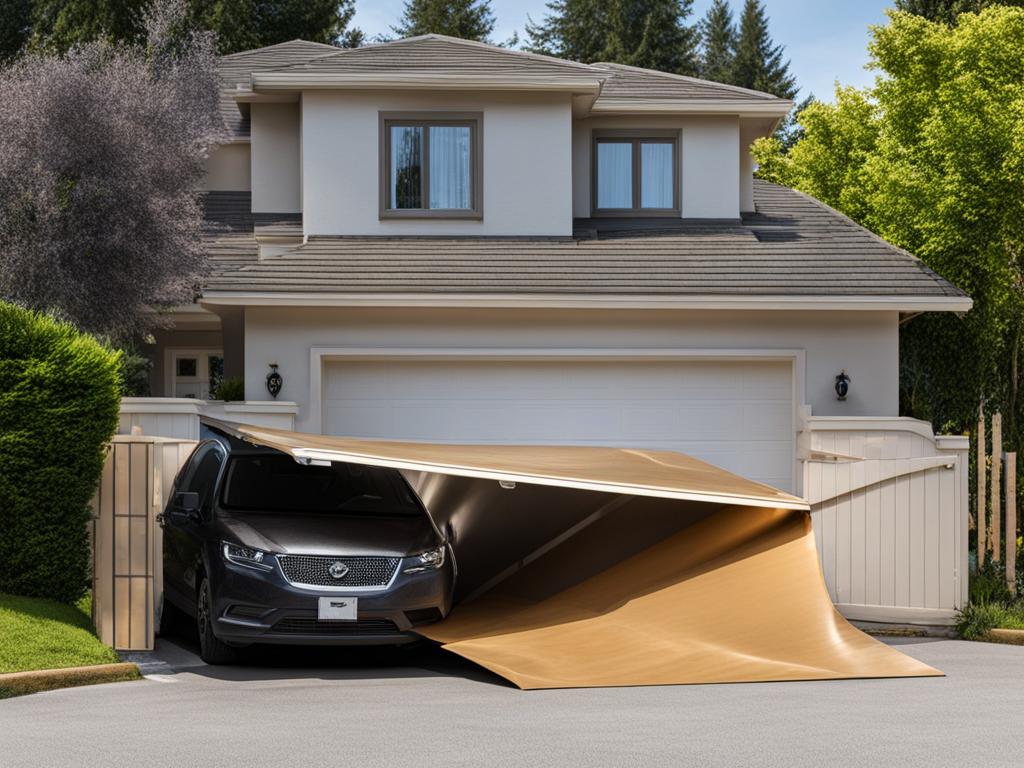
Worried About Losing Your House?
While the thought of losing your home in an at-fault car accident can be unsettling, it is essential to understand the legal and financial mechanisms at play. Protecting your assets, including your house, requires careful consideration of insurance coverage, additional policies, and state laws.
Aligning Insurance Coverage with Net Worth
One of the key steps to safeguarding your home is to ensure that your insurance coverage is aligned with your net worth. By accurately assessing the value of your assets, including your property, you can determine the appropriate liability coverage limit to protect against potential property loss.
Considering Umbrella Policies for Added Protection
To further mitigate the risk of losing your home, it is advisable to consider purchasing an umbrella policy. This additional coverage supplements your standard car insurance and provides an extra layer of protection in the event that the damages exceed your liability coverage limit.
Understanding State Homestead Laws
Another essential aspect of protecting your home involves understanding the homestead laws in your state. These laws provide varying degrees of protection for your home equity from creditors. Familiarize yourself with the specific provisions and exemptions offered by your state’s homestead laws to ensure maximum asset protection.
By actively engaging with these legal and financial mechanisms, you can alleviate some of the worries associated with the potential loss of your house. Prioritizing appropriate insurance coverage, exploring additional policies, and staying informed about state homestead laws will help safeguard your most valuable asset.
| Legal and Financial Mechanisms | Benefits |
|---|---|
| Aligning insurance coverage with net worth | Optimal protection against property loss |
| Considering umbrella policies | Additional coverage beyond liability insurance limits |
| Understanding state homestead laws | Shielding home equity from creditors |
Steps to Take After a Car Accident
Being involved in a car accident can be a traumatic experience, but it’s essential to stay calm and take the necessary steps to protect yourself and gather important information. Acting promptly is crucial for both insurance claims and potential legal actions. The following are the key steps you should take after a car accident:
- Remain at the Scene: It is vital to stay at the accident scene until instructed otherwise. Leaving the scene without exchanging information or helping injured parties can result in legal consequences.
- Call 911: Immediately report the accident to the police by dialing 911. The presence of law enforcement is crucial in documenting the accident and obtaining an official report.
- Check for Injuries: Before anything else, check yourself and others involved for injuries. If anyone requires medical attention, call for an ambulance right away.
- Gather Information: Collecting accurate and detailed information is essential for insurance purposes. Obtain the following information from all parties involved:
- – Full Name and Contact Information
- – Driver’s License Number
- – License Plate Number
- – Insurance Details (Company Name and Policy Number)
- – Vehicle Description (Make, Model, Color)
- Document the Scene: Take photos and videos of the accident scene, including damages to all vehicles involved, skid marks, traffic signs, and any relevant road conditions. These visuals can serve as evidence for insurance claims or legal proceedings.
- Identify Witnesses: If there are witnesses present, obtain their contact information. Their statements may provide valuable support if there are disputes about the accident.
Following these steps can protect your legal rights and ensure that you have the necessary information to file insurance claims and pursue compensation for damages. By acting responsibly and gathering crucial information immediately after the accident, you can set yourself up for a smoother claims process and potential legal actions, if necessary.
Pro Tip: Keep a pen, paper, and a disposable camera or a smartphone with a camera function in your car’s glove compartment. These items can facilitate the collection of information and ensure that you don’t miss any critical details in the immediate aftermath of an accident.
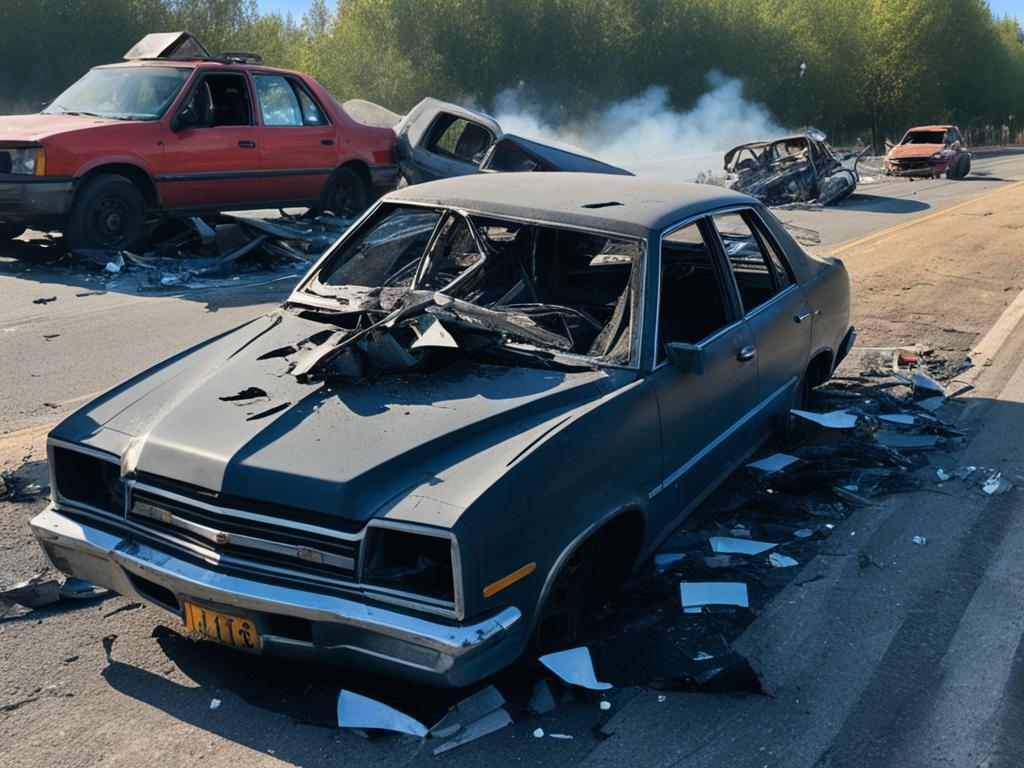
Recap
After a car accident, remember to remain at the scene, call 911, check for injuries, and gather information from all parties involved. Additionally, document the accident with photos, videos, and witness statements. These steps will help protect your rights and assist with insurance claims and potential legal proceedings.
Insurance Coverage and Legal Assistance
When you’re involved in a car accident, it’s essential to take immediate action to protect your interests. Contacting your car insurance company is the first step to report the incident and initiate the claims process. This will help you understand the coverage provided by your policy and ensure that you receive the necessary assistance.
“Reporting the accident to your insurance company is crucial as it establishes a record of the incident and helps expedite the claims process.”
Car insurance coverage plays a vital role in providing financial assistance for property damage, medical expenses, and liability claims resulting from the accident. Understanding the specifics of your policy, including coverage limits and deductibles, is crucial for navigating the complex aftermath of a car accident.
| Insurance Coverage | Details |
|---|---|
| Liability Coverage | Protects you from financial responsibility for injuries or damages caused to others in an at-fault accident. |
| Collision Coverage | Covers the cost of repairing or replacing your damaged vehicle, regardless of fault. |
| Comprehensive Coverage | Provides coverage for damage to your vehicle resulting from non-collision incidents such as theft, vandalism, or natural disasters. |
While your insurance coverage is essential, you may also need legal assistance to navigate the legal aspects of a car accident. Consulting with a car accident attorney can provide you with personalized advice and guidance on protecting your rights, understanding liability, and potential asset protection.
“A car accident attorney can help you understand the legal complexities, negotiate with insurance companies, and represent your interests if the case goes to court.”
Having an attorney by your side will give you peace of mind as they work diligently to ensure you receive fair compensation for property damage, medical expenses, and other losses resulting from the accident. They will also help you explore potential asset protection strategies if the accident leads to a lawsuit.
By combining insurance coverage and legal assistance, you can navigate the aftermath of a car accident with confidence and protect your financial and legal interests.
Asset Protection and Liability
When it comes to car accident lawsuits, it’s essential to understand the impact on your assets and liabilities. Assets refer to possessions with financial value, such as homes and cars, which can be targeted if you are found liable for damages. Protecting these assets is crucial to safeguarding your financial well-being.
Understanding the Risks
In a car accident lawsuit, if you are found at fault for the accident and the damages exceed your insurance coverage, you may be held personally responsible for the remaining amount. This can put your assets, including your home, at risk of being seized, sold, or liened by creditors.
It’s important to consult with an attorney to fully comprehend the potential consequences and determine the best course of action to protect your vulnerable assets.
Consult with an Attorney
Seeking legal advice is crucial in navigating the complexities of asset protection after a car accident. An attorney with expertise in personal injury and liability can provide guidance tailored to your unique situation. They can assess the risks, help you understand the legal implications, and formulate a strategy to safeguard your assets.
Asset Protection Strategies
There are various strategies you can consider to protect your assets after a car accident:
- Ensure you have adequate insurance coverage that matches your net worth. Review your liability limits and consider purchasing additional coverage, such as an umbrella policy, to extend your protection.
- Understand your state’s homestead laws, as they may provide certain protections for your home equity from creditors. However, the extent of protection varies by state.
- Explore legal mechanisms, such as trusts or other asset protection tools, that can help shield your assets from potential lawsuits.
Remember, each individual’s situation is unique, so it’s crucial to consult with legal professionals to establish the most effective asset protection strategy.
Visual Representation of Asset Protection Strategies
| Asset Protection Strategies | Advantages |
|---|---|
| Insurance coverage matching net worth | Ensures adequate protection for potential liabilities |
| Understanding state homestead laws | Provides potential protections for a portion of home equity |
| Exploring legal mechanisms | Offers additional layers of asset protection |
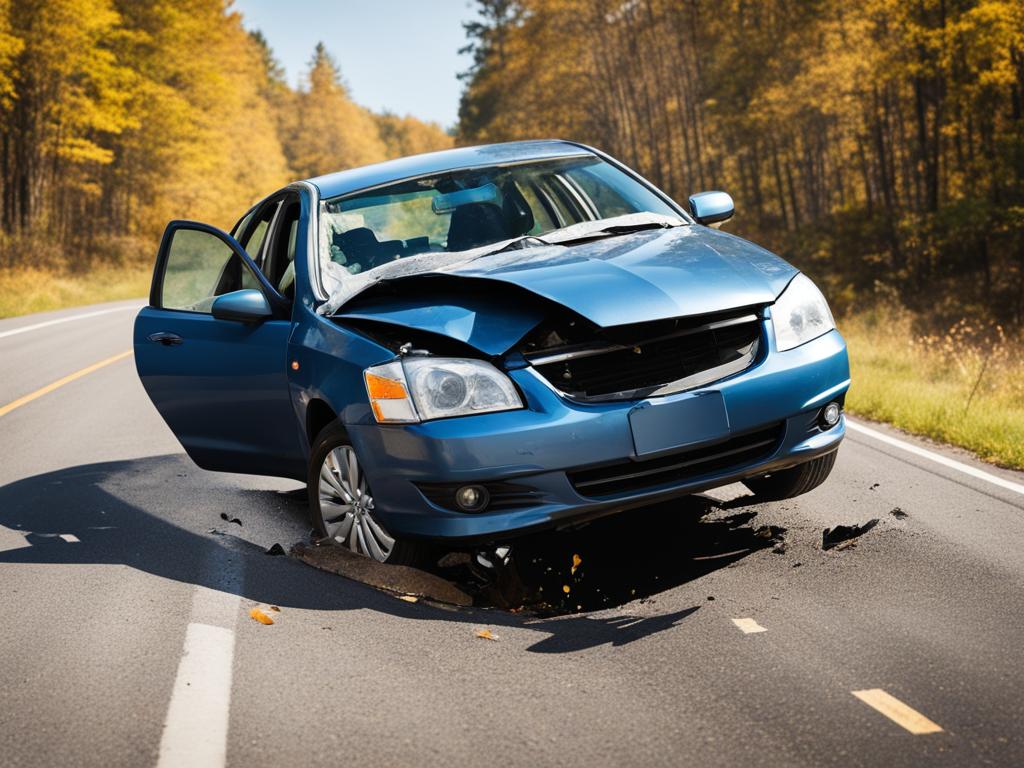
Overview of Car Accident Lawsuits in the United States
Car accident lawsuits are common in the United States, with thousands of people being injured or killed in accidents each year. In these cases, individuals seek legal recourse to obtain compensation for their injuries, property damage, and other losses resulting from the accident. Car accident litigation involves navigating complex legal processes to determine liability and seek appropriate damages.
Understanding Personal Injury Disputes
Personal injury disputes arise when one party claims to have suffered harm due to the negligence or recklessness of another party, in this case, resulting from a car accident. Negligence in car accidents refers to the failure to exercise reasonable care while driving, causing injury or damage to others. To establish negligence, the injured party must demonstrate that the at-fault driver owed them a duty of care, breached that duty, and that breach directly caused their injuries or losses.
When personal injury disputes arise from car accidents, both parties involved, the plaintiff (injured party) and the defendant (alleged at-fault driver), must present evidence and arguments to support their case. The viability of filing a lawsuit depends on factors such as the severity of injuries, extent of property damage, and the determination of fault by law enforcement or insurance companies.
The Role of Car Accident Litigation
Car accident litigation is a legal process that involves filing a lawsuit and seeking compensation for the damages suffered in a car accident. This process typically begins with negotiations between the parties’ insurance companies to settle the claim. If a settlement cannot be reached, the injured party may choose to pursue a lawsuit, taking the case to court.
“Car accident litigation is a complex and time-consuming process that requires experienced legal representation. A personal injury attorney can evaluate the strength of your case, gather evidence, negotiate with insurance companies, and advocate for your rights in court if necessary.”
Compensation in Car Accident Lawsuits
In car accident lawsuits, the injured party may seek various types of compensation, including:
- Medical expenses: Reimbursement for past and future medical treatment related to the injuries sustained in the accident.
- Property damage: Compensation for repairs or replacement of the damaged vehicle or other property.
- Lost wages: Reimbursement for the income lost due to the inability to work as a result of the accident.
- Pain and suffering: Compensation for physical pain, emotional distress, and psychological trauma caused by the accident.
The amount of compensation awarded in car accident lawsuits varies depending on the severity of the injuries, the impact on the victim’s life, and other factors. It is important to consult with a personal injury attorney to assess the potential value of your claim and guide you through the legal process.
| Types of Compensation | Description |
|---|---|
| Medical expenses | Reimbursement for past and future medical treatment |
| Property damage | Compensation for vehicle repairs or replacement |
| Lost wages | Reimbursement for income lost due to inability to work |
| Pain and suffering | Compensation for physical and emotional distress |
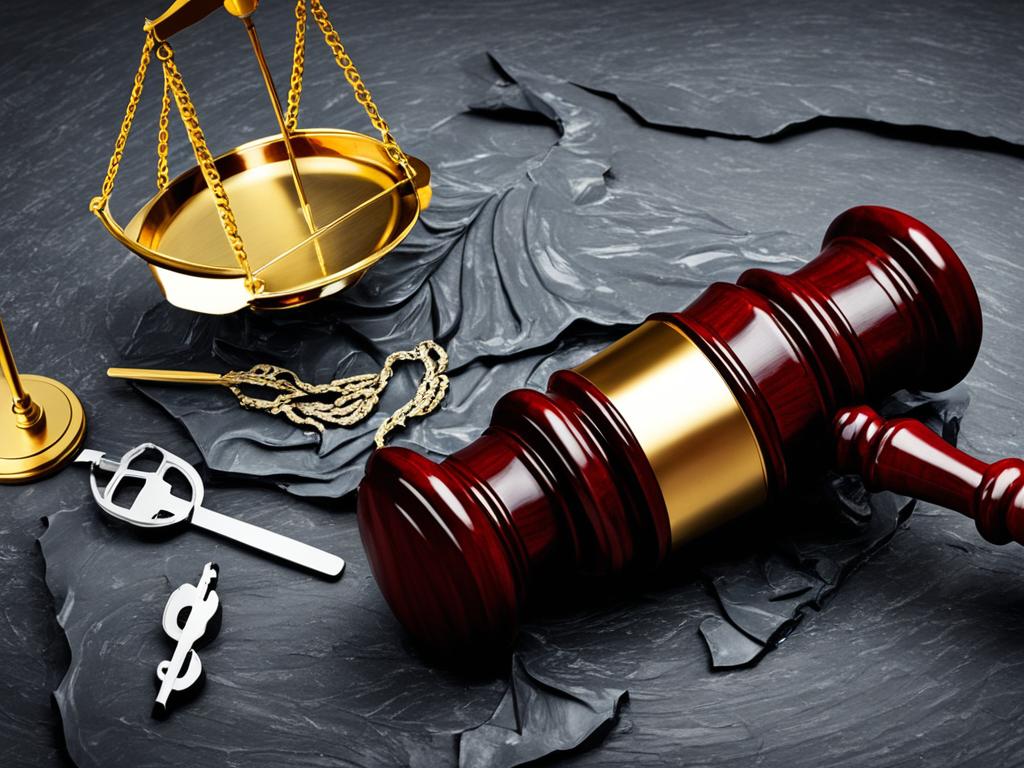
How Car Accident Lawsuits Can Lead to the Loss of Your Home
In certain cases, if you are sued for damages in a car accident lawsuit and the verdict is against you, the court may order the sale of your home to pay the judgment. These sales, known as execution sales, can result in the loss of your home if the sale proceeds do not cover the damages awarded. Filing for bankruptcy may provide protection for your home equity and help avoid the loss of your home.
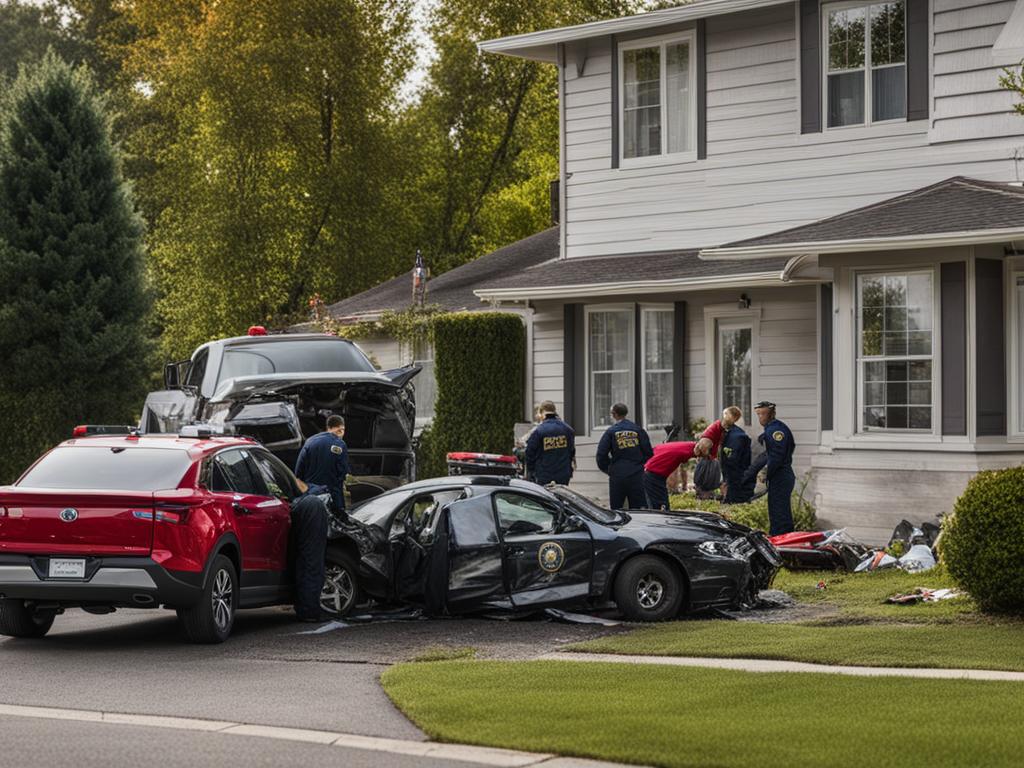
Understanding Execution Sales
When a court orders an execution sale, it means that your home will be sold to satisfy the judgment against you. This typically occurs when the damages awarded in the car accident lawsuit exceed the amount of insurance coverage you have or your ability to pay out of pocket. The sale proceeds will be used to compensate the injured party for their losses.
Protecting Your Home
To protect your home from being sold in an execution sale, it is crucial to explore all available options. One option is to negotiate a settlement with the injured party or their insurance company to avoid a judgment that could lead to the sale of your home. Additionally, filing for bankruptcy may provide protection for your home equity and halt the execution sale process.
Consulting with an Attorney
When facing the prospect of losing your home in a car accident lawsuit, it is essential to consult with an experienced attorney. An attorney specializing in personal injury and bankruptcy law can provide valuable guidance and explore legal strategies to protect your home. They can also help negotiate settlements and navigate the complex legal proceedings involved in bankruptcy filings.
Exploring Financial Alternatives
If you are unable to settle the lawsuit or file for bankruptcy, it may be worth considering other financial alternatives to prevent the loss of your home. This could include seeking a loan to cover the damages awarded or exploring options for refinancing your home to free up equity. However, it is important to carefully consider the potential risks and consequences associated with these alternatives.
Being Proactive: Maintaining Adequate Insurance Coverage
The best way to safeguard your home from the risk of loss in a car accident lawsuit is to maintain adequate insurance coverage. Regularly review your insurance policy to ensure that it provides sufficient liability coverage for potential damages. Consider purchasing an umbrella policy, which can provide additional coverage beyond your primary insurance policy, to further protect your assets.
Examples of Car Accident Lawsuits That Have Led to the Loss of Homes
Real-life examples demonstrate the potential consequences of car accident lawsuits, where individuals have lost their homes due to financial difficulties arising from legal fees and medical bills.
Consider the case of Jane Thompson, who was found liable for a severe car accident injury. Despite being awarded a significant verdict, Jane lacked sufficient funds to cover her legal expenses and medical bills. As a result, her home was foreclosed and sold at auction, causing her to lose her most valuable asset.
Another example is the Peterson family. After being sued for damages resulting from a multi-vehicle collision, the Petersons faced overwhelming medical expenses and a substantial legal bill. Unable to satisfy the judgment against them, their home was sold to satisfy the outstanding debt.
These real-life situations underscore the importance of obtaining legal representation and fully understanding your options to protect your home in the event of a car accident lawsuit.
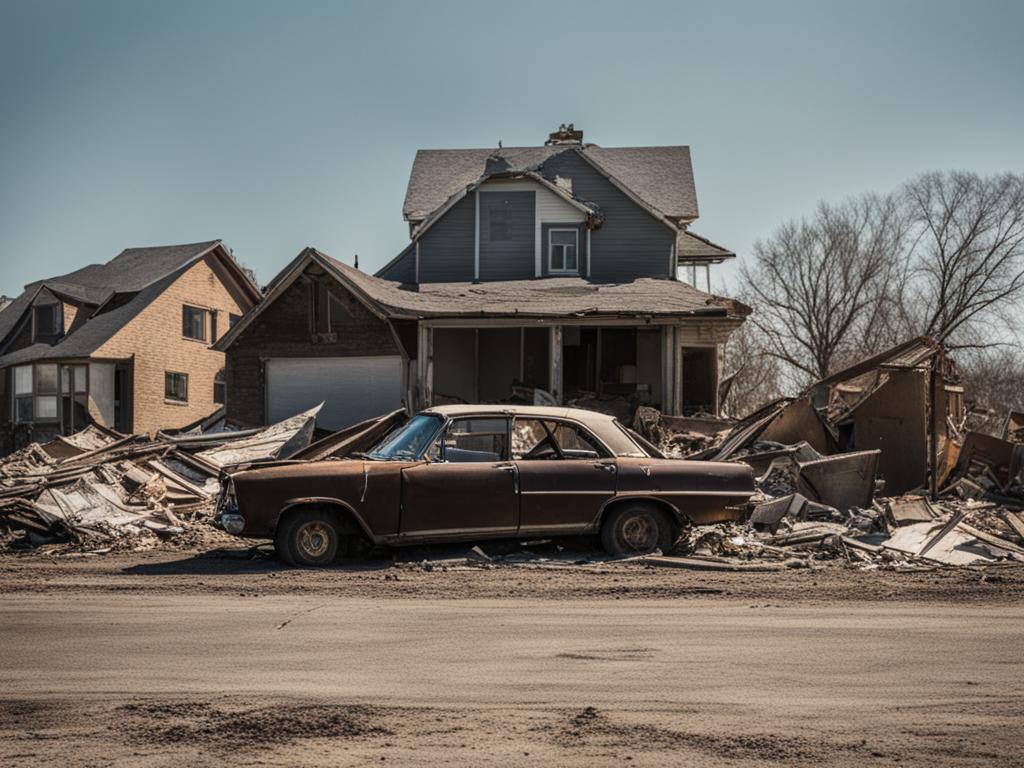
Image: A representation of the impact of car accident lawsuits on home loss.
Ways to Protect Your Home from Being Lost in a Car Accident Lawsuit
To protect your home from potential loss in a car accident lawsuit, it is essential to have homeowner’s insurance with personal liability coverage. This coverage can provide crucial financial protection in the event of legal claims arising from an at-fault car accident. By understanding the details of your insurance policy and taking proactive steps, you can strengthen your defense and safeguard your home.
1. Homeowner’s Insurance with Liability Coverage
Ensure that your homeowner’s insurance policy includes personal liability coverage. This coverage can protect you financially by covering the costs of damages awarded in a lawsuit. In the event of an at-fault car accident, liability coverage can provide a safety net for potential property loss claims.
2. Avoid Admissions of Fault or Responsibility
After a car accident, be cautious when discussing the incident with others, especially regarding admissions of fault or responsibility. Anything you say can be used against you in a legal proceeding. Consult with your legal representation before making any statements to protect your interests and minimize the risk of jeopardizing your defense.
3. Seek Legal Representation
Engaging an experienced attorney specializing in car accidents can be instrumental in protecting your home. They can guide you through the legal process, advise you on the best course of action, and help you build a strong defense. A skilled attorney can review your insurance policy, analyze the details of the accident, and represent your interests in negotiations or court proceedings.
“Legal representation is crucial in navigating the complexities of car accident lawsuits and protecting your assets, including your home.”
By taking these proactive measures, you can strengthen your defense and protect your home from potential loss in a car accident lawsuit. Remember, being prepared is key to safeguarding your assets and ensuring your peace of mind.

Conclusion
While it is possible to lose your house in a car accident lawsuit, there are steps you can take to protect your assets, including your home. Maintaining appropriate insurance coverage is crucial in ensuring that you have adequate financial protection in case of a car accident. Understanding your state’s homestead laws can provide valuable insight into the extent of protection granted to your home equity. Consult with legal professionals who specialize in car accident litigation to receive personalized advice tailored to your specific circumstances.
By staying informed and proactive, you can mitigate the risk of property loss and safeguard your assets. It is important to regularly review your insurance policies to ensure that they adequately cover your net worth. Consider supplementary policies like an umbrella policy to provide an extra layer of protection beyond the standard coverage. A car accident attorney can guide you through the complexities of the legal process and provide invaluable support in ensuring your rights and assets are protected.
Remember, each car accident case is unique, and the outcome can vary based on various factors. By taking proactive measures such as maintaining suitable insurance coverage, understanding state laws, and seeking professional advice, you can minimize the risk of losing your house in a car accident lawsuit. Don’t hesitate to reach out to experts who can provide the guidance you need to navigate through such challenging situations.
FAQ
Can I lose my house due to an at-fault car accident?
It is possible to lose your house in a car accident lawsuit if you are sued for damages, found at fault for the accident, and the damages exceed the value of your home.
What is liability coverage and how does it relate to property damage?
Liability coverage is designed to cover the costs of the other party’s injuries and property damage if you are at fault in an accident. If the damages exceed your coverage limit, you may be personally responsible for the remaining amount, potentially putting your home at risk.
How can I safeguard my assets, including my home, after a car accident?
To protect your assets, including your home, it is important to ensure that your liability coverage matches your net worth. Consider purchasing an umbrella policy for additional coverage and familiarize yourself with your state’s homestead laws, which protect a portion of your home equity from creditors.
What should I do after a car accident?
After a car accident, it is important to remain at the scene, call 911 to report the accident, check for injuries, and gather information about the other drivers involved. Taking these steps can help protect your rights and ensure that you have the necessary information for insurance claims or potential lawsuits.
Who should I contact after a car accident?
Contact your car insurance company after an accident to report the incident and understand the coverage provided by your policy. It is also advisable to consult with a car accident attorney who can provide personalized advice and legal assistance regarding insurance, potential liability, and protecting your assets.
Can my house be seized in a car accident lawsuit?
Yes, any possessions with financial value, including homes, can be targeted in a car accident lawsuit. If you are found liable for damages and cannot pay, the court may order the sale of your home to pay the judgment.
Are there real-life examples of people losing their homes in car accident lawsuits?
Yes, there have been cases where individuals awarded large verdicts in car accident lawsuits have faced foreclosure or had their homes sold at auction due to their inability to cover legal fees and medical bills.
How can I protect my home from being lost in a car accident lawsuit?
To protect your home, make sure you have homeowner’s insurance with personal liability coverage. Avoid admissions of fault or responsibility, seek legal representation, and explore options such as filing for bankruptcy, which may provide protection for your home equity.

